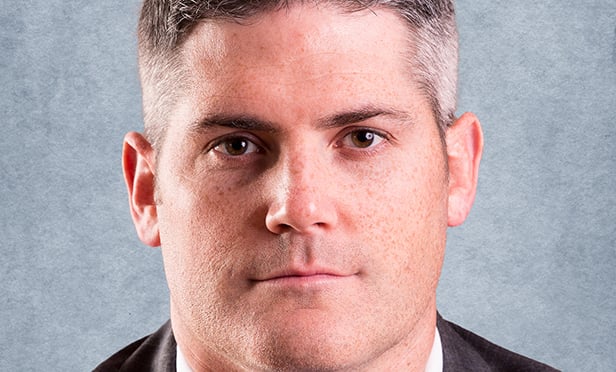LOS ANGELES—In 2015, NAIOP SoCal's legislative-affairs committee will be focused on countering the organized efforts to change commercial property taxes under Proposition 13. GlobeSt.com spoke with Kevin Ivey, NAIOP SoCal's legislative-affairs chairman, about why the industry needs to become energized and involved in opposing changes to Proposition 13.
GlobeSt.com: Who is challenging Prop 13 and why?
Ivey: A number of grassroots community organizations have emerged that want to gut Prop 13. One of these is a Bay Area-based group called Evolve, which is circulating around the state asking city councils to approve a resolution aimed at changing the way commercial real estate is taxed. Evolve claims that commercial property buyers can avoid reassessment and skip and increase in property tax by structuring their ownership so that no one partner owns more than 51% of the property.
NAIOP and our business coalitions oppose schemes to avoid paying the property tax intended under Prop 13. We want our members and others in the commercial real estate industry to know that these groups intend to place an initiative on the November 2016 ballot that would amend the California Constitution to increase the 1% tax rate for commercial property, reassess commercial property more often than at the time of sale and increase the annual escalation. They claim that Prop 13 has caused California's low ranking in per-pupil K-12 spending, that it is a handout to real estate corporations and that it is to blame for government gridlock.
GlobeSt.com: How damaging is their resolution?
Ivey: The Davenport Institute at Pepperdine University projects that a split roll tax would cost the state $71.8 billion of lost output due to the loss of 396,300 jobs in the first five years alone. We all desire successful schools with growing graduation rates, rising test scores and successful students. But it is poor public policy to pay for this on the backs of commercial real estate owners for three reasons.
First, the resolution proposed by Evolve is unnecessary. A legislative fix is working its way through Sacramento. In 2014, AB 2372 by Assemblyman Ammiano gained broad bipartisan support and provides the legislative solution to the change-of-ownership wrinkle in Prop 13. Although the bill did not advance to become law this year, its reintroduction and passage in the 2015 legislative session is the solution to the issue, not a ballot initiative to change Prop 13.
Second, the split roll tax resolution is bad for small business. The resolution's sponsors claim their proposal will not impact small business. This is absolutely false. A split roll tax will hit small businesses the hardest. Any increase in property tax is passed on to the tenant by their landlord through their lease. Small businesses are least able to absorb rent increases, which may cause them to lay off employees or potentially close altogether.
Third, commercial property does pay its share of real estate tax. The resolution's backers claim that commercial property does not pay its fair share of the real estate tax. This is simply not true. State Board of Equalization data shows that from 1980 to 2012, the share of the total property taxes paid by commercial properties has grown from 58% to 60%. Board of Equalization data also shows that during the same period from 1980 to 2012, the growth in value for all residential property increased by 7.2% per year—by comparison, the value of commercial property grew at the faster rate of 7.5% per year. This data demonstrates that commercial properties not only pay their share, but are paying a growing share of the property tax.
GlobeSt.com: What is NIAOP SoCal doing to stop this bad resolution?
Ivey: Our legislative-affairs committee members are active at the local level persuading city council members and speaking at council meetings to provide the facts about just how bad this resolution is and encouraging them to vote the resolution down. We've had some wins and some losses. Evolve has already convinced the Los Angeles City Council, among others, to pass their resolution, but this just shows that we have a real battle ahead.
It is important that our industry understand the magnitude of this challenge and that we are prepared to invest our time and talents to head off the coming split roll tax ballot initiative. An analysis of the facts surrounding a proposed split roll tax shows that changes to Prop 13 are harmful to the regional and state economy, and that it is a poor way to increase funding for our schools. For more information about how you can help, go to www.naiopsocal.org or to www.StopHigherPropertyTaxes.org.
© Touchpoint Markets, All Rights Reserved. Request academic re-use from www.copyright.com. All other uses, submit a request to [email protected]. For more inforrmation visit Asset & Logo Licensing.






